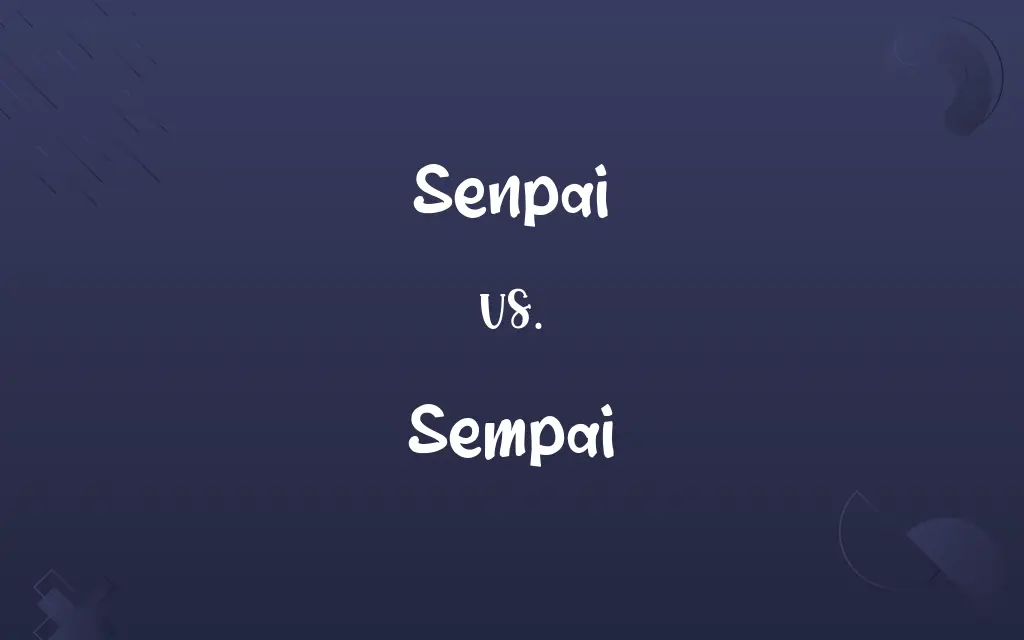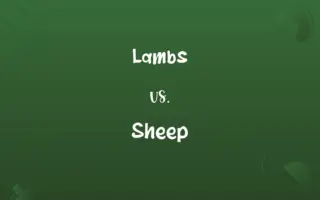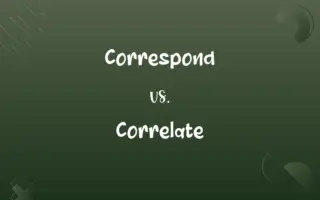Senpai vs. Sempai: Know the Difference

By Shumaila Saeed || Updated on December 25, 2023
Both refer to someone of higher status or experience, often in a school or workplace setting, with no significant difference in meaning.

Key Differences
Senpai and Sempai are essentially the same word in Japanese, representing someone senior in status or experience. The difference lies in the romanization of the Japanese character "せんぱい".
Shumaila Saeed
Nov 11, 2023
The term Senpai is more commonly used in modern romanization, adhering to the Hepburn system. Sempai, while less common, is still correct and reflects an older style of romanization.
Shumaila Saeed
Nov 11, 2023
In Japanese culture, a Senpai is a senior or mentor figure, especially in schools and workplaces. Sempai is an alternate spelling, but both carry the same connotations of respect and hierarchy.
Shumaila Saeed
Nov 11, 2023
Senpai is often used in anime and manga, popularizing this spelling internationally. Sempai, though less prevalent, is understood in the same context but may appear in older texts or translations.
Shumaila Saeed
Nov 11, 2023
Both Senpai and Sempai embody a cultural concept of acknowledging experience and seniority, important in Japanese social and professional interactions, regardless of the spelling variation.
Shumaila Saeed
Nov 11, 2023
ADVERTISEMENT
Comparison Chart
Usage in Media
More common in contemporary media
Less common, seen in older media
Shumaila Saeed
Nov 11, 2023
Recognition Internationally
Widely recognized due to popular media
Recognized, but less prevalent
Shumaila Saeed
Nov 11, 2023
ADVERTISEMENT
Senpai and Sempai Definitions
Senpai
Someone with more experience in a specific field or activity.
As a new member of the club, he sought advice from a senpai.
Shumaila Saeed
Nov 11, 2023
Sempai
An individual with greater experience or seniority.
In the dojo, he always trained under the watchful eye of his sempai.
Shumaila Saeed
Nov 11, 2023
Senpai
A senior colleague or classmate.
She looked up to her senpai for guidance in the project.
Shumaila Saeed
Nov 11, 2023
Sempai
A mentor in a workplace or educational institution.
Her sempai at the firm provided invaluable industry insights.
Shumaila Saeed
Nov 11, 2023
Senpai
An upperclassman in schools or universities.
The freshmen admired their senpai for their achievements.
Shumaila Saeed
Nov 11, 2023
ADVERTISEMENT
Sempai
An upper-level student in a school or university.
The junior students organized a farewell party for their sempai.
Shumaila Saeed
Nov 11, 2023
Senpai
A mentor figure in a professional or educational setting.
His senpai in the company helped him navigate the early days of his career.
Shumaila Saeed
Nov 11, 2023
Sempai
A respectful term for someone higher in rank or age.
He learned a lot about leadership by observing his sempai.
Shumaila Saeed
Nov 11, 2023
Senpai
A term of respect for someone higher in hierarchy.
She always addressed her senpai with great respect.
Shumaila Saeed
Nov 11, 2023
Sempai
A senior colleague or classmate.
He was grateful for the support of his sempai during his first year.
Shumaila Saeed
Nov 11, 2023
Repeatedly Asked Queries
Can sempai be used interchangeably with senpai?
Yes, sempai can be used interchangeably with senpai.
Shumaila Saeed
Nov 11, 2023
How is senpai used in Japan?
Senpai is used to address or refer to someone who is senior in school, work, or within a group.
Shumaila Saeed
Nov 11, 2023
What is the origin of senpai?
Senpai originates from Japanese culture and language.
Shumaila Saeed
Nov 11, 2023
Can senpai be used in a workplace?
Yes, senpai can be used in a workplace to refer to someone more experienced.
Shumaila Saeed
Nov 11, 2023
Is senpai a formal title?
Senpai is not a formal title, but a term of respect and social hierarchy.
Shumaila Saeed
Nov 11, 2023
Is senpai used outside of Japan?
Yes, senpai has become popular internationally, particularly through media like anime and manga.
Shumaila Saeed
Nov 11, 2023
Is senpai gender-specific?
No, senpai is not gender-specific and can refer to any gender.
Shumaila Saeed
Nov 11, 2023
What is the difference in spelling between senpai and sempai?
The difference lies in the romanization; senpai follows modern Hepburn, while sempai is an older form.
Shumaila Saeed
Nov 11, 2023
What does senpai mean?
Senpai refers to someone with higher status, experience, or seniority.
Shumaila Saeed
Nov 11, 2023
Is sempai the same as senpai?
Yes, sempai is an alternate spelling of senpai with the same meaning.
Shumaila Saeed
Nov 11, 2023
Do both senpai and sempai have the same cultural significance?
Yes, both terms carry the same cultural significance of respect for seniority.
Shumaila Saeed
Nov 11, 2023
Does the use of senpai vary by region in Japan?
The usage of senpai is relatively consistent across Japan.
Shumaila Saeed
Nov 11, 2023
Is sempai often used in Japanese media?
Sempai is less commonly used in contemporary Japanese media compared to senpai.
Shumaila Saeed
Nov 11, 2023
Can sempai be a form of address?
Yes, sempai can be used to directly address someone senior.
Shumaila Saeed
Nov 11, 2023
Can senpai refer to a mentor?
Yes, senpai can refer to a mentor or guide, especially in a learning environment.
Shumaila Saeed
Nov 11, 2023
Are there any formal rules for using senpai/sempai?
There are no formal rules, but it's a cultural norm to use these terms appropriately in social contexts.
Shumaila Saeed
Nov 11, 2023
How do young people in Japan use senpai?
Young people use senpai to address or talk about someone older or more experienced in school or other groups.
Shumaila Saeed
Nov 11, 2023
Is it common for non-Japanese speakers to use senpai/sempai?
Yes, the popularity of Japanese culture through media has made these terms familiar to non-Japanese speakers.
Shumaila Saeed
Nov 11, 2023
Can sempai be a term of endearment?
While it's a term of respect, it can also carry a sense of endearment in certain contexts.
Shumaila Saeed
Nov 11, 2023
Share this page
Link for your blog / website
HTML
Link to share via messenger
About Author
Written by
Shumaila SaeedShumaila Saeed, an expert content creator with 6 years of experience, specializes in distilling complex topics into easily digestible comparisons, shining a light on the nuances that both inform and educate readers with clarity and accuracy.






































































